Leaving behind the scratchy tourism boom town of Labuan Bajo, it doesn’t take long to be into the hills. The road climbs and twists. On hairpins, pokey cafes cling to ridges and offer up views across the Manggerai lowlands. In the distance through the haze, Komodo shimmers.
After a half-hour or so, on the right, there’s a scruffy dirt track with a gaggle of scooters pulled up. It would be indistinguishable from all the other dirt trails we’ve passed save for the sign.
“Dapur Tara Flores Cuisine.”
Warnings from back Labuan Bajo fresh in mind to not bother trying to ride the trail, we park and start walking. It’s a slow, gentle decline into a valley of sorts, and in no time, the sounds of grinding truck gears and tooting scooters fade, replaced by squelching mud, birds in the trees and the reverberating hum of cicadas.
Meet Ratna and Kris at Dapur Tara Flores. Photo: Stuart McDonald.
After more mud, we reach a garden running off to our left with a half dozen bright lumbungs overlooking it. Beyond, a simple gate then a path leading to a wood and thatch hut. There is nobody in sight though we can already smell food.
A young man steps out of the hut and approaches.
“Welcome to Dapur Tara Flores,” Kris says with a broad smile.
Part restaurant, part homestay, part educational outreach, Dapur Tara’s humble appearance belies its importance. This isn’t only a place to sample Floresian cuisine. Rather it is a signpost to a style of travel different to what we left behind in Labuan Bajo.
A month after our visit, I’m chatting on the phone with Liz, Dapur Tara’s founder, and I ask how long people stay. “Oh months,” she says, “people come for a night and stay for a week, two weeks.” This is slow travel—and nothing goes part and parcel with slow travel like slow food.
Where the magic happens. Photo: Stuart McDonald.
Behind the hut, a tumbledown stone path leads to the base of a grand tree. Woven mats cover a wooden platform, with draped traditional fabrics as a backdrop. To the side, a narrow creek, its waters crystal clear, gurgles. As we sit, Kris asks if we’d like a drink, and suggests coffee. I nod, while my son Will asks for water. Kris scurries back to the shack and we recline in the shade.
Will pulls his phone out, stares at it, then at me, horrified. There’s no signal.
Liz harks from Maumere, a town on the north coast of Flores, a comfortable three-day ride from where we sit. She left her village in Maumere’s mountains for Malang, a university town in Java. There she studied Tourism and Hospitality Management, spirituality, meditation and midwifery. No, not all in the same course. Later she found herself working in Banyuwangi, in the far eastern reaches of Java, and then Bali. But the pull of Flores was strong.
The dining room is not fancy. Photo: Stuart McDonald.
She wanted to create something that not only showcased Flores—its food yes, but also its people and hospitality—but also differentiated it from the rest of the country. She wanted to create that feeling of being a part of a family, where even a first-time guest feels like they are returning to the fold.
Kris returns with our drinks. My syrupy kopi Flores has a bite to it, of the caffeine, but there’s something more. I look to Kris quizzically, “It’s spicy,” he smiles. Laden with cloves, turmeric, ginger, cinnamon and galangal, it’s also delicious.
Off to a good start. Photo: Stuart McDonald.
This is not our first visit to Dapur Tara. We’d ridden out the previous day only to find it closed. With Covid-19 and all, we needed to make a booking in advance. When I relate this to Kris, he laughs and says “yes when you do not book, we cannot smoke the chicken.” The chicken needs to be smoked for six hours. I ask if I can take a look.
One end of the hut is given over to the dirt-floor kitchen, and inside, Ratna and two other staff work away. There’s an open fire on the floor, and a meter above, a splayed whole chicken is on a rack, in the final stages of smoking. The smokiness is almost overpowering—in a good way.
Time to eat. Photo: Stuart McDonald.
Liz tells me when she returned to Maumere after her stints in Java and Bali, she saw the schooling standards had not changed since her time as a schoolkid. According to World Bank data, Indonesian government spending in 2019 as a percentage of GDP on education was 2.8% in 2019—the third-lowest in the region. Ill-equipped schools aside, even the best teachers are overworked and under-compensated. Students, and their education, suffer. A trained teacher, Liz talks about instilling an awareness of the wonders of Indonesia’s natural beauty—and the need to preserve and protect it—in kids. The beauty of Indonesia—and the peril it is in—sadly is news to many schoolkids.
While Dapur Tara was still a figment of her imagination, Liz found herself travelling along the Trans Flores Highway. Rain hit, and taking shelter from the storm just shy of Melo, she got chatting to some local people. As is so often the case in Indonesia, the chatting led to coffee—and more chatting. It turned out there was some land available, in a well-wooded bowl-like valley. Behind it, a mountain stood—not unlike in the village near Maumere where Liz grew up. In the valley, there was good energy—it seemed to collect there, Liz tells me.
I can’t begin to tell you how good this chicken was. Photo: Stuart McDonald.
Our food starts to arrive. First come some local bananas, dressed with coconut shavings and a dashing of brown sugar. Then the mains arrive. There’s kolo (nasi bambu), lomak (a cassava leaf salad), pineapple sambal, crispy papaya, red rice, and of course the smoked chicken. Kris talks me through the banquet, explaining not only are they all Floresian dishes but that all the produce is local. The herbs and vegetables all come from their own organic garden. The chicken and red rice from their local community. The plates are woven with a banana leaf laid on top. Indeed the only thing manufactured is the cutlery and the shot glass a wild purple concoction comes in later on. The meal is easily the best meal we have in two weeks on Flores.
Sitting under the tree stuffing face, with Kris, Ratna and the birds for company, it is easy to feel alone, but there are at least three nearby villages. It is in these villages that the dream of giving local kids’ future a push is playing out. In one village that lacked a school, they started one. Aside from teaching they manage donations of books and other materials to assist the kids. Kids are taught about trash collection and the environment that surrounds them.
Must eat everything. Photo: Stuart McDonald.
More than once as Liz talks, she mentions “golden kids.” By this, she means kids who get it, kids who, given the opportunity and resources, are able to truly shine. She says she just needs a few from each class—that will be where the change comes from.
After the meal, Kris shows me around the bungalows. They’re as simple as they are bright, with little in the way of creature comforts. They’re doing it right though. The power is solar, bathrooms are shared, there’s no WiFi—not even a phone signal. I can imagine spending a couple of nights here as a digital detox, but when Liz says guests stay weeks and months, I wonder how they fill their time.
Jungle cocktail. Photo: Stuart McDonald.
She tells me guests read, and chat away with Liz and the staff. Sometimes they cook and eat together. The culture exchange goes both ways. Sometimes they might help in the garden, or volunteer at a village—there is, after all, plenty of work to be done. When night falls, they might play music and dance.
After the jarring commercialism of Labuan Bajo, I want to say Dapur Tara is a refreshing blast, but it’s more of a soothing balm. The longer I sit around, chatting to Kris and Ratna and just, well, soaking up the atmosphere, the longer I want to linger.
Pineapple sambal. Who knew? Photo: Stuart McDonald.
I ask Liz what her plans are? She says she dreams of a string of similar places dotted across Flores from west to east, each amplifying what makes that area so special. The government is blind to the real attractions of Flores—What is Starbucks? she asks rhetorically. She’s preaching to the converted here.
While we only have the pleasure of a few hours at Dapur Tara, it is is a highlight of our time in Flores. I get the impression Liz is the sort of person who starts small but dreams big, and it’s easy to dream of places like Dapur Tara dotted across the island. Each with their own team of golden kids blazing a new, more exciting and more sustainable flavour of tourism.
Not only across Flores—but across the whole country.
Couchfish is 100 per cent independent and reader-supported. If you’re not already a subscriber, and you’d like to show your support, become a paying subscriber today for just US$7 per month—you can find out more about Couchfish here—or simply share this story with a friend.
Don’t forget, you can find the free podcasts on Apple, Pocket Casts and Spotify as well as right here on Couchfish.










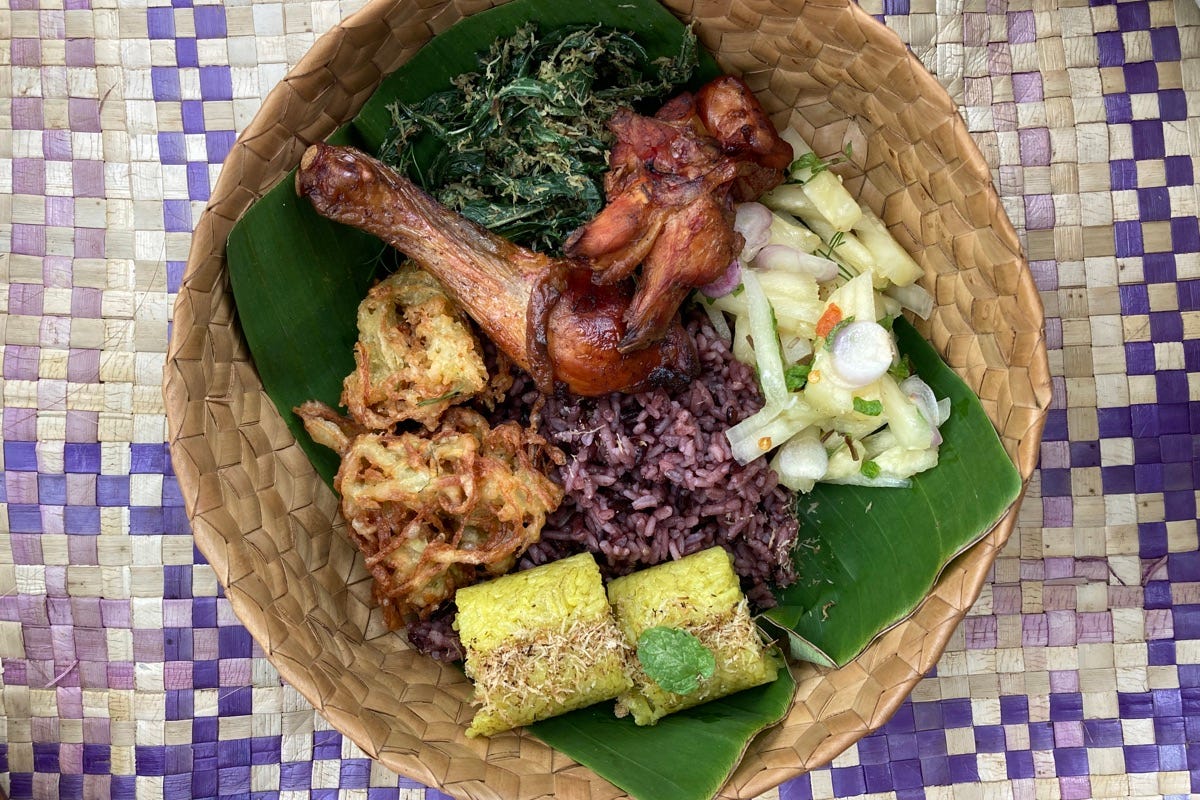
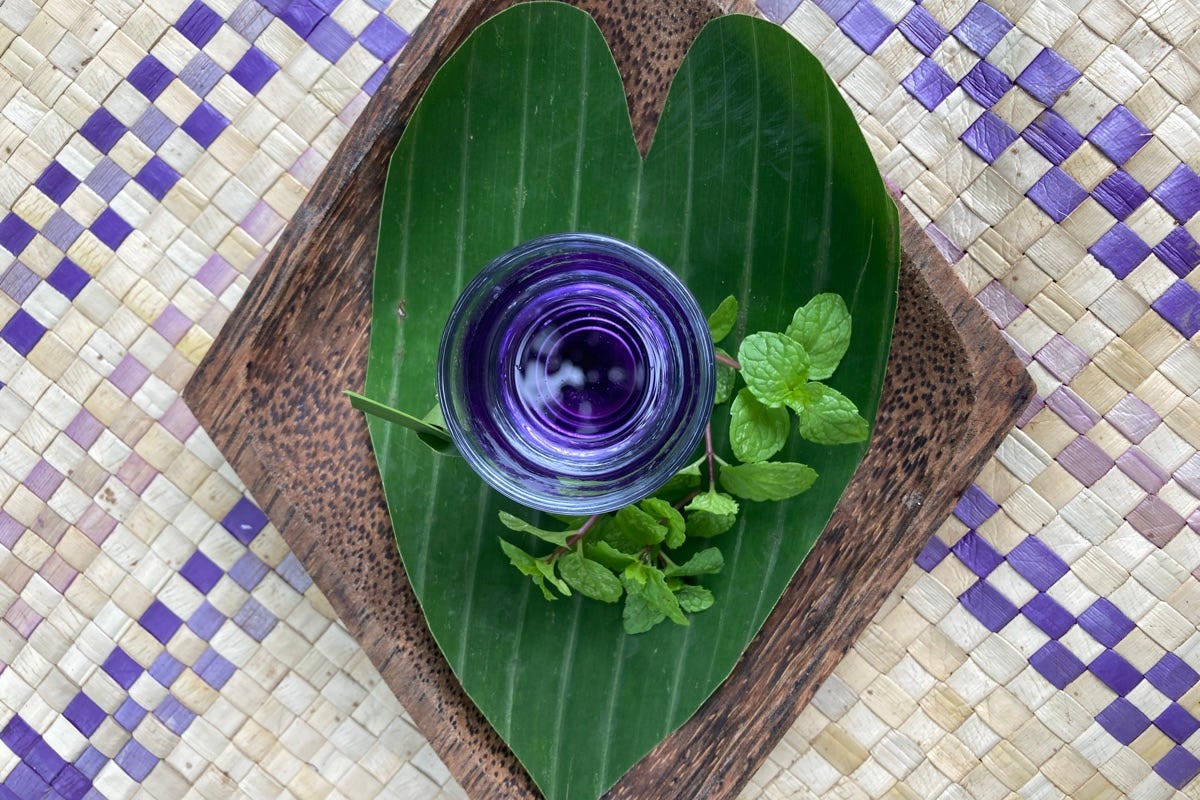


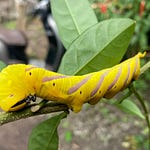
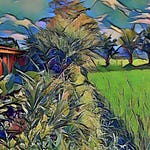

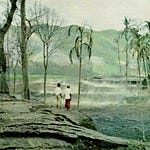

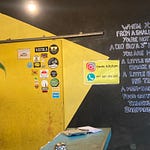
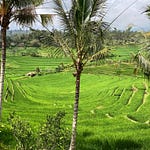

Share this post